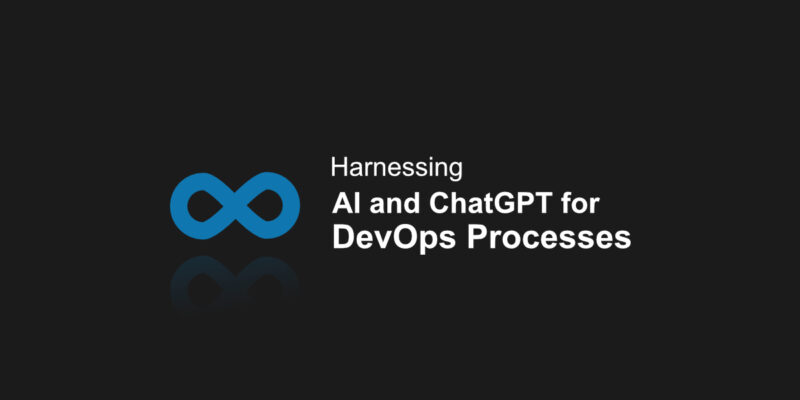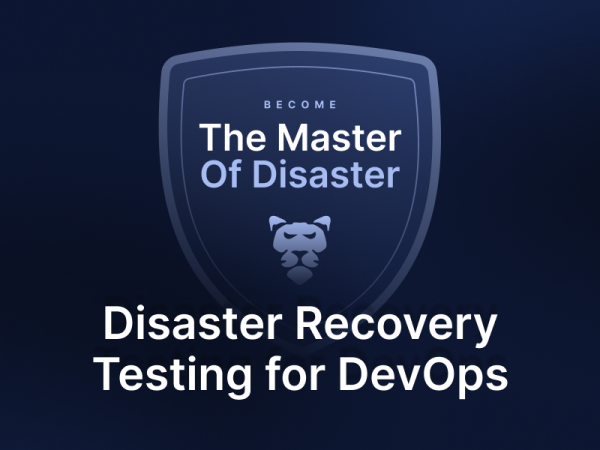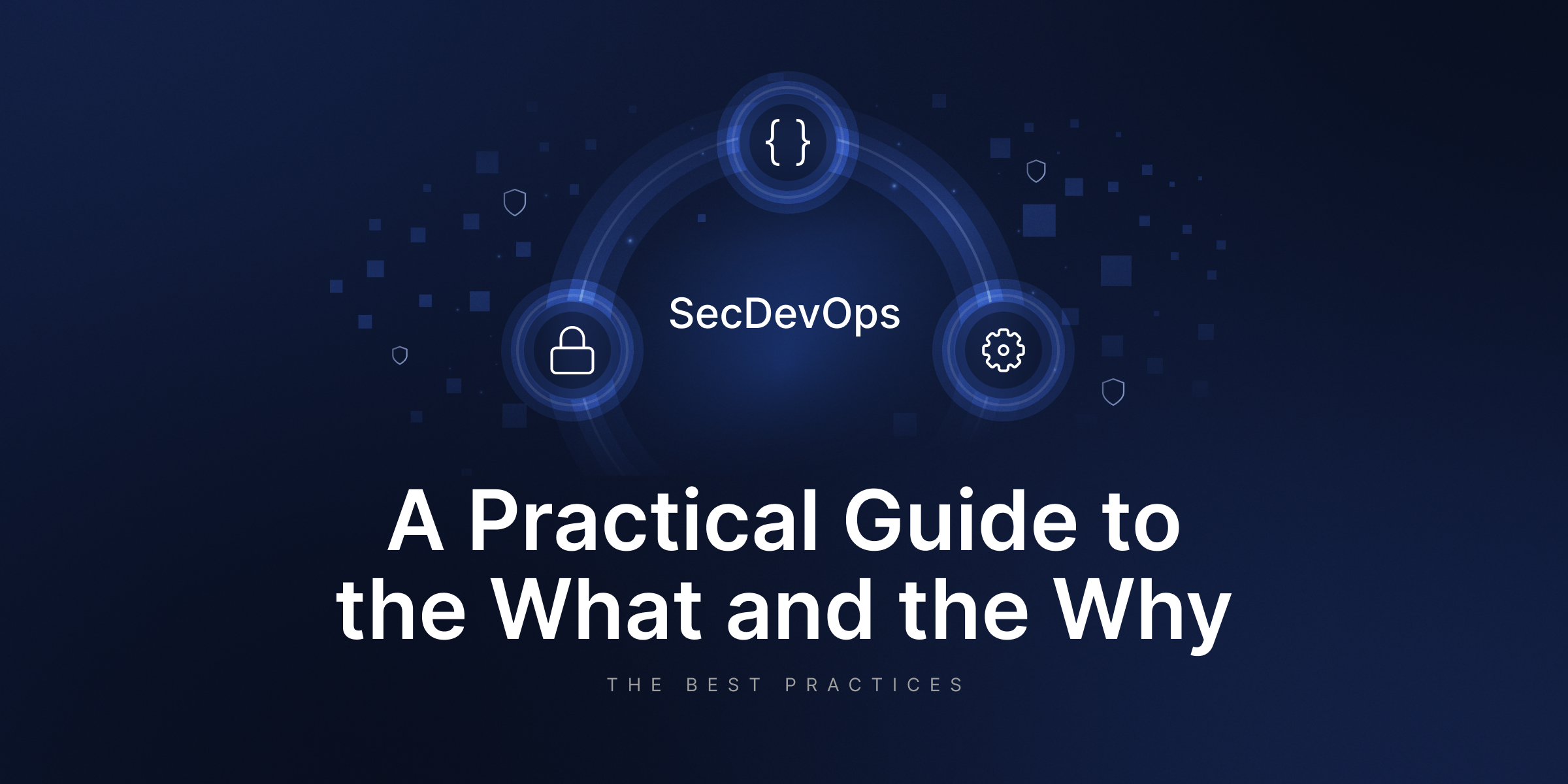
Harnessing AI and ChatGPT for DevOps Processes
The combination of AI (artificial intelligence) and ChatGPT systems has revolutionized the way businesses are approaching DevOps processes. This article will delve into how these techniques have improved upon traditional approaches, providing advantages to companies looking to make improvements in their operations.
From better collaboration, automated processes, cost reduction, and faster insight-gathering times to flexible distributed architecture and decreased reliance on manual tasks, we’ll examine the impact of AI/ChatGPT on DevOps performance and highlight the associated benefits.
Short Summary
- AI and ChatGPT are powerful technologies that can be used to automate and improve DevOps processes, resulting in improved efficiency, reduced costs, and increased reliability.
- To successfully utilize AI and ChatGPT in DevOps processes, organizations should define goals and objectives, identify the appropriate use cases, and test and monitor their systems.
- Best practices for utilizing AI and ChatGPT in DevOps processes include automation, improved efficiency, and reduced cost to maximize productivity and minimize expenditure.
Overview of AI and ChatGPT
AI and ChatGPT are two emerging technologies that have the potential to revolutionize DevOps processes. Now let’s delve a bit into the theory, definition, and assumptions of both of these concepts. By understanding the basics of AI and ChatGPT and implementing best practices, organizations can harness the power of these technologies to improve their DevOps processes.
What is AI?
Artificial Intelligence (AI) is the simulation of human intelligence processes by machines, especially computer systems. It includes expert systems, natural language processing, speech recognition, and machine vision. AI is a powerful tool that can be used to automate and improve DevOps processes. AI algorithms are designed to learn from the data they are fed and to improve their performance over time.
AI is also capable of recognizing patterns, making decisions, and carrying out tasks with minimal human intervention. AI has been used for various applications such as fraud detection, medical diagnostics, robotic process automation, and more. AI has been used in DevOps to automate tasks, improve efficiency, and reduce costs.
For example, AI is used to automate processes such as deployment, monitoring, and patching. AI can also be used to improve efficiency by automating repetitive tasks associated with infrastructure management. AI can also help reduce human error by providing data-driven insights that help operations teams make more informed decisions.
What is ChatGPT?
ChatGPT is an AI chatbot developed by OpenAI that uses natural language processing to generate responses to user queries. It is a general-purpose chatbot that can be used for free and is derived from the GPT-3.5 series, which includes data up until November 2022. ChatGPT is a language model based on the GPT-2, a generative pre-trained transformer. It has 10 million parameters and 10 times as much data in the training set. It was trained on Common Crawl, a nonprofit organization that crawls the web and makes its archives and datasets freely available, and 60% of GPT-3’s weighted pre-training dataset is filtered from it.
ChatGPT is a powerful tool that can be used to automate DevOps processes, improve efficiency, and reduce costs. ChatGPT can be used to automate tasks such as provisioning, deployment, and configuration. It can also be used to generate code, save time, and create new tools. ChatGPT can be used to provide users with context-aware examples and commands, as well as to generate detailed knowledge. ChatGPT can also be used to generate commands and perform tasks based on natural language input. For example, it can be used to generate code for specific tasks or to answer questions about infrastructure.
It is an example of how AI and natural language processing can be used to create a powerful tool that can be used to automate DevOps processes. With its ability to generate code and understand natural language, ChatGPT is a powerful tool that can be used to help organizations become more efficient and reduce their costs.
By understanding the basics of AI and ChatGPT and implementing best practices, organizations can harness the power of these technologies to improve their DevOps processes.
Benefits of Using AI and ChatGPT in DevOps Processes
AI and ChatGPT can provide numerous benefits to DevOps processes. By leveraging the OpenAI API and ChatGPT model, organizations can generate shell command suggestions based on user input, helping developers and operations teams create seamless workflows and automate tasks. This can reduce the time to adopt and maintain complex systems and create and manage automation, workflows, and other DevOps tasks faster than traditional tools.
Additionally, ChatGPT can reduce the likelihood of human error when performing complex tasks, improving communication and collaboration between DevOps teams. It can also help to reduce the time and effort associated with DevOps tasks, allowing DevOps engineers to be more productive.
By following best practices, organizations can ensure they are taking full advantage of AI and ChatGPT in their DevOps processes.
For example, GitLab has already implemented AI into their platform for developer teams to write and deliver code more efficiently by viewing code suggestions while typing, and to help developers get faster and higher quality reviews. What is more, GitLab has recently announced a generative AI partnership with Google, which will permit the git service provider to use Google’s generative AI foundation models for providing their users with AI-powered opportunities within GitLab cloud infrastructure.
Automation
AI and ChatGPT can offer many benefits to DevOps processes, including automation. Automating various tasks in the DevOps cycle, such as testing, deployment, and monitoring, can lead to increased efficiency and reliability in software development and deployment. Additionally, AI can improve decision-making processes and detect issues before they occur, leading to reduced downtime and improved uptime.
Furthermore, ChatGPT-like experiences can simplify access to DevOps functions, respond to questions using knowledge sourced from databases, and enable self-service requests in natural language over chat platforms. This can be a valuable tool for DevOps teams, as it can reduce human error and allow for more complex tasks to be transformed into “easy conversations”.
By understanding the potential benefits and challenges of using AI and ChatGPT in DevOps processes, organizations can ensure they are leveraging these technologies to their fullest potential.
Improved Efficiency
AI and ChatGPT can improve efficiency in DevOps processes in several ways. Automating jobs, streamlining workflows, and minimizing downtime can lead to faster development cycles and reduce compute costs. Additionally, AI can enhance business workflows and improve operational costs.
Furthermore, ChatGPT can help reduce the time to adopt and maintain complex systems, create and manage automation, workflows, and other DevOps tasks faster than traditional tools.
Reduced Cost
AI and ChatGPT can help DevOps teams reduce costs. Automating jobs, streamlining workflows, and minimizing downtime can lead to reduced compute costs, and reduced costs associated with promotion and release. Additionally, AI can enhance business workflows and improve operational costs. It can also help to reduce human error and enable data-driven decision-making, leading to improved efficiency and cost savings.
It is important to consider the challenges associated with implementing AI and ChatGPT in DevOps processes in order to maximize cost reduction benefits.
Challenges to Consider When Implementing AI and ChatGPT in DevOps Processes
When implementing AI and ChatGPT in DevOps processes, there are several challenges to consider, such as security, accuracy, and complexity. Security is a major concern, as it is essential that access and data are distributed securely, and tasks are automated properly.
Additionally, accuracy is important, as AI and ChatGPT must be able to perform tasks correctly and efficiently. Finally, complexity is a challenge, as there is the need to manage and monitor large volumes of data and computations and integrate AI and ML requiring specialized knowledge, and skills.
To ensure the successful implementation of AI and ChatGPT in DevOps processes, organizations must define goals and objectives, identify appropriate use cases, and test and monitor their systems.
Security
Security is an important factor to consider when implementing AI and ChatGPT in DevOps processes. AI-generated commands can be complex and difficult to control, making it difficult to enforce access and data distribution securely. Additionally, certain security tasks may be difficult to automate, requiring manual intervention. This can be especially challenging for DevOps teams with limited resources.
Furthermore, continuous monitoring of applications and infrastructure is necessary to detect and respond to security threats in real-time, and AI can help with this by recording threats and executing ML-based anomaly detection. Let’s look at the example of GitLab which has recently implemented AI into DevOps processes, and with it improved the security and operations by automating repetitive tasks permitting developers to remediate vulnerabilities more efficiently, catch bugs earlier in the development process, and write more secure code.
Though, to ensure that AI is utilized securely and effectively in the DevOps processes, organizations should implement proper access controls, review and validate AI-generated commands before execution, and have a human in the loop to oversee the process.
Accuracy
Accuracy is an important factor to consider when implementing AI and ChatGPT in DevOps processes, as it can have a direct impact on the system’s performance. AI and ChatGPT are often used for complex tasks such as natural language processing and command-line interface automation. These tasks require a certain level of accuracy to be successful, and any errors or inaccuracies can lead to incorrect decisions or outcomes.
Additionally, AI and ChatGPT are limited by their programming and knowledge of the task at hand, making it difficult to make decisions based on any new information or details. To ensure that their systems are secure and efficient, organizations must understand the accuracy challenges associated with AI and ChatGPT in DevOps processes and take steps to review and validate AI-generated commands before execution.
Complexity
When implementing AI and ChatGPT in DevOps processes, there are several complexities to consider. Managing and monitoring large volumes of data and computations, as well as integrating AI and ML requiring specialized knowledge and skills, can be challenging. Additionally, AI is strong with analytical tasks, but faces challenges with practical ones, such as the how-to-deploy aspect.
To ensure successful implementation of AI and ChatGPT in DevOps processes, organizations should understand the complexities of using AI and ChatGPT and implement best practices, such as providing multiple command options to users to enable them to make informed decisions while executing their tasks.
Best Practices for Utilizing AI and ChatGPT in DevOps Processes
The best practices for utilizing AI and ChatGPT in DevOps processes include automation, improved efficiency, and reduced cost. Automation can help to make DevOps processes faster and more reliable, while improving efficiency can help streamline processes and reduce the amount of time needed to accomplish tasks.
Additionally, ChatGPT can help to reduce costs associated with DevOps processes by eliminating the need to hire additional developers or engineers to perform tasks. By leveraging AI and ChatGPT, organizations can increase their productivity and decrease the cost of development and operations.
Define Goals and Objectives
When utilizing AI and ChatGPT in DevOps processes, it is important to define clear goals and objectives. This includes understanding the complexity of the tasks that need to be automated and the natural language that will be used for commands. Additionally, it is important to create a workflow that can be easily followed by users and developers, and to identify the tools and technology that will be used in the process.
Finally, it is important to understand the details of the infrastructure, such as the ability to write code or deploy instances.
Identify the Appropriate Use Cases
AI can be used in DevOps to automate routine tasks, improve collaboration between teams, and enhance the performance of problem-solving and decision-making processes. This can lead to reduced downtime, improved reliability, and increased uptime.
Additionally, AI can be used to detect potential issues before they occur, allowing DevOps teams to react quickly and resolve issues before they become costly. By identifying the appropriate use cases for AI and ChatGPT in DevOps processes, organizations can ensure that they are getting the most out of their implementation.
Test and Monitor
Testing and monitoring are essential for ensuring that AI and ChatGPT are used correctly in DevOps processes. This includes testing the accuracy of algorithms, checking for security vulnerabilities, and ensuring that the AI models are properly calibrated.
Additionally, it is important to monitor the performance of AI models on a daily basis, as well as test and monitor the code and commands generated by the AI model as you can’t be 100 percent sure that everything will definitely work smoothly with artificial intellegence. As an additional measure to stay peace of mind, you may consider GitHub, Bitbucket, or GitLab backup for your DevOps environment. In this case, if something goes wrong, you will be able to restore your data fast eliminating data loss.
Are you switching to a DevSecOps operation model? Remember to secure your code with the first professional GitHub, Bitbucket, GitLab, and Jira backup.
Summary
Organizations have begun to recognize the benefits of harnessing the power of AI and ChatGPT in DevOps processes, yet doing so can be a tricky subject for many. Implementing AI and ChatGPT requires organizations to ensure secure access controls, review data accurately, backup DevOps data automatically, and use complex systems wisely. While automating correct solutions reduces errors and increases performance, some challenges may arise.
Knowing how to apply AI and ChatGPT effectively is key to the success of these technologies and identifying the right use cases are critical. Fortunately, there are plenty of best practices available that help businesses create successful implementations, such as setting goals and objectives, testing and monitoring their system, and identifying use cases to maximize their usefulness.
With proper understanding, industries large and small can benefit from utilizing AI and ChatGPT in their DevOps processes to reduce costs and increase productivity.
Frequently Asked Questions
Will ChatGPT replace DevOps?
It is clear that ChatGPT has the potential to support developers and DevOps engineers since it can streamline the complex processes associated with coding.
However, given the scope of current abilities, it is unlikely that ChatGPT will fully replace DevOps roles in the near future.
What is the use of ChatGPT in DevOps?
ChatGPT helps DevOps teams automate routine tasks, enabling them to focus on value-driven activities. Its natural language processing capabilities make it easier for engineers to create and manage automation, resulting in improved communication, collaboration and faster task resolution.
Is DevOps still a thing?
Yes, DevOps is definitely still a thing and it’s more relevant than ever before. It offers many significant benefits, such as shorter development cycles and improved operational efficiency, that make it an essential part of today’s world.
DevOps is a combination of software development and IT operations, and it’s designed to help organizations deliver applications and services faster. It also helps to reduce the complexity of managing multiple accounts.
What is the use of ChatGPT in DevOps?
ChatGPT has proved to be a valuable asset in our DevOps workflow, helping us save time and resources. By leveraging natural language processing, it is able to automate many DevOps tasks, such as infrastructure management, incident management, and more.
This has simplified our processes and improved communication and collaboration in the team.







